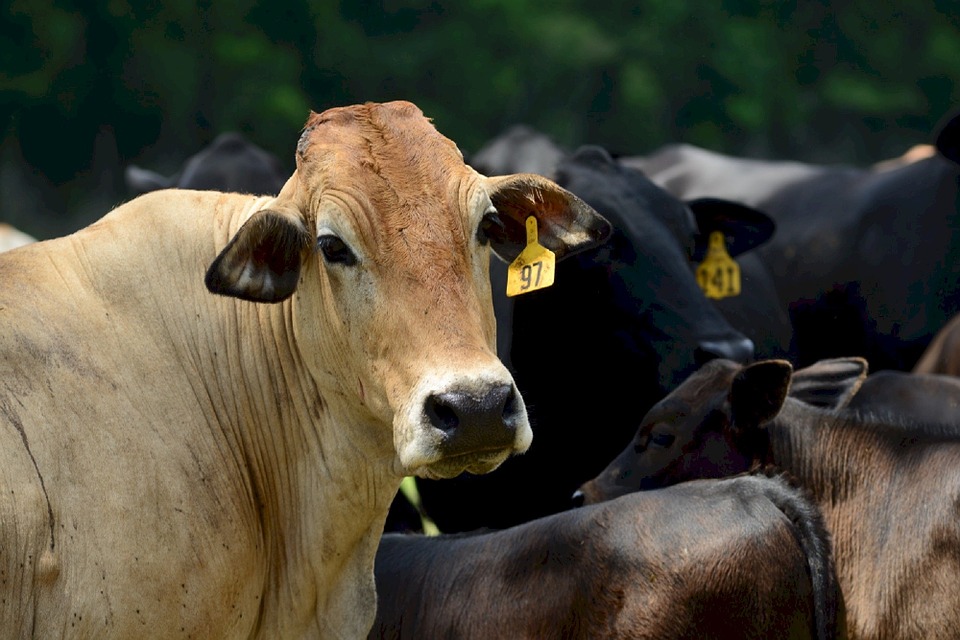By Elizabeth Schoales, BA, MA, PhD, LLB (candidate).
Last month a slim majority of British citizens voted for the UK to leave the European Union. It’s impossible to predict what’s going to unfold but if this happens it will affect animals, both in Britain and elsewhere. What we can do for animals in Canada at this stage is to be aware of the situation and the possible consequences.
Animal law and the EU
As one of 28 Member States, the UK is subject to EU law, which regulates cross-border trade and commerce. Laws related to animals are premised on Article 13 of the Treaty on the Functioning of the European Union (TFEU), acknowledging that animals are sentient beings, and requiring Member States to give full regard to their welfare requirements. This informs all EU Treaties, Regulations and Directives, which cover various areas such as rearing, slaughter and transportation of farm animals, product labelling as it relates to welfare, importation of endangered species and products, zoos, animals in research, and the international trade and travel of companion animals.
Article 13 is important symbolically but its effects are limited, as religious rites – like halal slaughter – and cultural traditions – such as bullfighting – are exempt. Another significant problem is that since open borders and free movement of goods are at the heart of the EU, and animals are viewed as goods, albeit sentient, Member States fear that a ban on the live import or export of animals would be challenged.
Animal protection and enforcement in the EU is hardly ideal but regulations continually move towards better conditions for animals. It has defined animal welfare strategies, while the Intergroup on the Welfare and Conservation of Animals is one of the European Parliament’s oldest intergroups. The EU allows more progressive Member States to propose higher standards and raises the bar for those that have poor animal welfare. It also serves as an example for countries like Canada, whose dismal animal protection laws are years behind by comparison.
Animal law and the UK
About 80% of animal welfare legislation in the UK derives from the EU. The remaining 20% covers domestic matters not pertinent to trade, such as animal cruelty, hunting, and companion animals within its borders. Farmers also receive subsidies through the EU’s Common Agricultural Policy (CAP). UK farmers receive over £2 billion in EU subsidies a year, making up about 55% of farming income in Britain. Much of the animal welfare improvements they make are dependent on these funds.
If Brexit happens
None of this would change if the UK remains in the EU, which is a possibility given the political chaos and legal quagmire that has ensued. If it does choose to leave, it must first give formal notice, after which is has two years to negotiate a new relationship with the EU. After that, it would cease to be a Member, would not be subject to any new EU regulations, and would no longer receive subsidies. Since EU law is incorporated into UK legislation, the UK Parliament would have to repeal or amend whatever it doesn’t want to keep.
What then for animals?
If the UK leaves, the future for animals would depend on the party in power. The current Conservative government has argued that it would be freer to set higher animal welfare standards, ban the importation of unethical products like foie gras and fur, and ban the export of live animals. It’s also stated that it could redirect subsidies to welfare programmes that would make UK farmers more economically competitive.
All of this seems doubtful. The UK would still need to follow WTO and EU regulations if it wanted to trade with the EU. It would cease to receive subsidies and has no plan for how to replace them. The Conservatives are pro-industry, and since factory farming is based on cost efficiency, more expensive welfare measures currently supported by CAP would inevitably suffer.
In fact it’s unlikely that the current government would do anything to help animals. It’s long been opposed to implementing anything beyond minimum EU requirements, arguing it puts UK businesses at a competitive disadvantage. It has a history of trying to block improvements for animals, and in 2011 it ended gold plating, i.e., incorporating into UK law anything beyond the bare EU basics. It’s also been accused of breaching EU animal welfare rules. It’s tried to repeal domestic animal protection legislation and deregulate animal-use industries. These attempts have been unpopular and a different government could take a very different position, but with nothing in UK law like TFEU Article 13 to restrain them, any government could pose a serious threat to animal welfare.
Canada and the EU
All of this may seem far away but if the UK were to leave, it would have implications for animals in Canada. The most immediate issue is the Canada and European Union Comprehensive Economic and Trade Agreement (CETA), which has yet to be ratified. CETA doesn’t prohibit the import/export of live animals, and doesn’t address welfare other than to promote collaboration between the parties. In reality any kind of harmonisation of standards and control systems would be virtually impossible, given how different they are, and there has already been pressure to lower EU standards in favour of Canadian business interests. Even if higher EU welfare standards prevailed, there’s no way that the inadequate Canada Food Inspection Agency could ensure they are met.
CETA has already hit a number of roadblocks but the UK leaving the EU could stall it indefinitely. It must be ratified not just by Canada and the EU but by all 28 Member States. The UK has been pro-CETA while some other Member States have opposed it and related controversial issues like GMOs and cloning. If the UK plans to leave, it will have little reason to continue promoting the deal. EU trade with Canada could very likely be put on the backburner altogether while Europe sorts out its own problems.
Canada and the UK
A separate UK would have to start creating its own trade deals, for which it has no expertise, having relied on the EU for 40 years. Nor would it have CAP payments to help maintain welfare standards. Its largest and closest partner would be the EU, but it would be in a weak position, would still have to meet EU standards for any goods it exports, and would probably be subject to rules of origin to ensure it doesn’t become a back door for countries with poorer welfare standards trying to get into the EU.
Canada is a likely trading partner for an independent UK, where CETA could provide a model. But we don’t know what the UK of the future could look like, and without the clout of the EU, it would struggle to stand firm against pressure from trading partners with inferior welfare standards like Canada, the US or China. We would then see if there’s any substance to their professed interest in banning live imports and unethical products. This is particularly relevant in regards to Canadian seal products, which are banned in the EU. And Canada’s current government has no apparent qualms about exporting live animals around the world.
Conclusion
International trade is complicated enough without adding Brexit to the mix, and there are a myriad of ways it affects animals, from agriculture, to experimentation and testing, to endangered species. We have no idea how the UK-EU situation will unfold or how the billions of animals in Canada and abroad who are shipped, abused and killed in the name of profit could be affected. One thing we can be sure of is that those at the top are going to give them little thought without public pressure. It’s important for the rest of us to keep an eye on the situation and do what we can to ensure their already perilous welfare isn’t worsened in the confusion.
This blog and the contents herein are for informational purposes only and do not constitute legal advice. The opinions expressed are those of the author.




